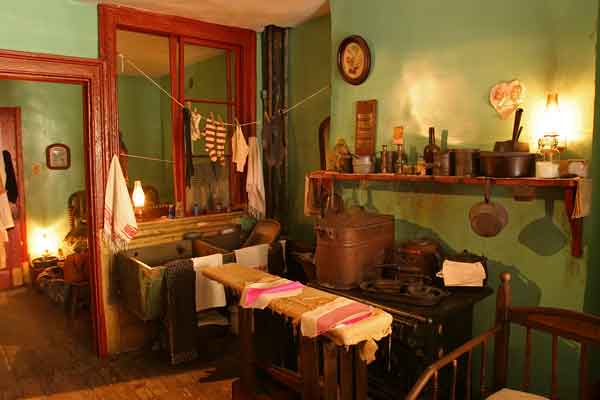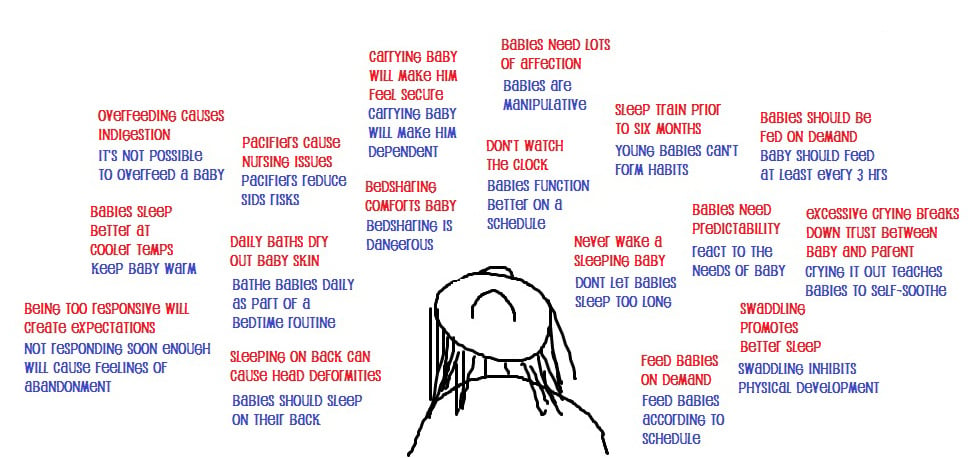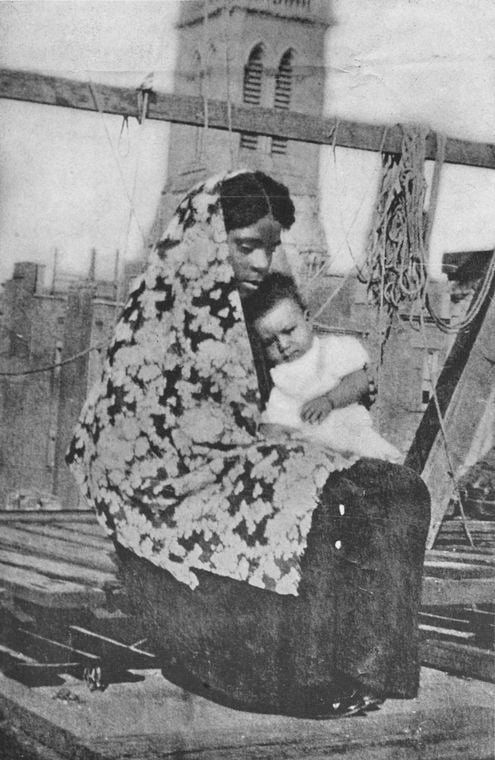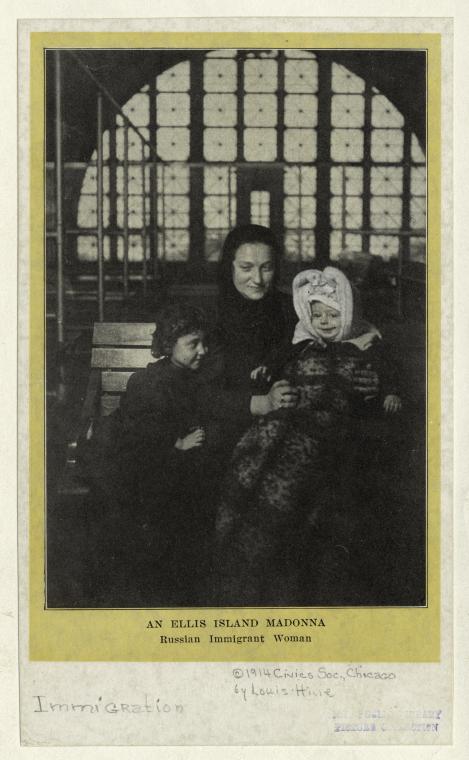Blog Archive
Bringing up Baby
Last Christmas, after dinner, I had a baby. What followed was the longest, fastest three months of my life. And while babies do not come with instruction manuals, parenting experts, mommy bloggers, family, friends, bystanders on random street corners, are all too quick with (often contradictory) advice on how to raise an intelligent, independent, compassionate, and socially-conscious individual.
This Mother’s Day, we salute moms who, for more than a century, have sifted through the fog of information, from the benign to the absurd.
As Tenement Museum staff we are constantly reminded that, as hard as it is to raise a baby in New York City today, it could have been worse. In 1897, as 2.3 million people in New York City (two-thirds of the population) lived in overcrowded tenements, L. Emmett Holt, a leading pediatrician and author, wrote the bestselling book, The Care and Feeding for Children. He urged parents to keep the nursery in “as large a room as possible … one that is well ventilated, and always one in which the sun shines at some part of the day.” As someone who is thankful that her walk-in closet is large enough to fit a crib (a rarity in New York City), this advice hits particularly close to home. And for our tenement residents, it was near impossible.
And what are these children to do in such spacious, well-ventilated rooms? Holt wrote that “babies under six months old should never be played with; and the less of it at any time the better for the infant…They are made nervous and irritable, sleep badly and suffer from indigestion and in many other respects.”
Let’s not forget about all the emotional damage caused by physical affection. In their 1916 book, The Mother and Her Child, William and Lena Sadler wrote, “If we sow indulgence we shall reap anger, selfishness, irritability, “unbecomingness”—the spoiled child. … Handle the baby as little as possible. Turn occasionally from side to side, feed it, change it, keep it warm, and let it alone; crying is absolutely essential to the development of good strong lungs. A baby should cry vigorously several times each day.” Mothers such as Jenny Levine, who lived in the Tenement at 97 Orchard in 1897, would have had a hard enough time carrying fresh water up and down the tenement steps, keeping the coal burning stove going, making meals for her husband and his employees to worry about whether she was playing with her babies the right amount.
Are you on the path to putting these rules into practice? Well, don’t think pregnant women get a pass – even bathing is all too risky for the expectant mother. George Henry Napheys, in his 1889 book, The Physical Life of Woman: Advice to the Maiden, Wife, and Mother, cautions, “Foot-baths are always dangerous. Sea-bathing sometimes causes miscarriage … The shower-bath is of course too great a shock to the system, and a very warm bath is too relaxing… women of a lymphatic temperament and of a relaxed habit of body are always injured by the bath.”

The domain of the tenement mother. It was a tall task to keep the coal stove roaring and to keep small children out of harms way.
As foreign as these theories may sound, with a 20% infant mortality rate in the 1870s, mothers were looking for professional guidance. Many of the mothers in tenement housing during this period were foreigner. Imagine how confusing this advice was to them! Immigrant mothers, then and now, have an added challenge when considering child rearing advice. Although they may have had support and theories of their own back home, it may have been hard to raise their children according to their traditions in the crowded Lower East Side. Even today, with access to pediatric care and modern medicine, it’s hard as a new mother not to harbor these same fears. Without training or certification of any kind, I brought a human being home with not so much as a flyer on how to keep him alive. Thankfully, as the parenting debate rages on, there is no shortage of gurus to shed some light on the daunting task. One hundred years from now, as parenting experts ridicule our current debates on pacifiers and sleep training, we’ll see how the conversation evolves with the changing times. Who’s to say what is right and wrong? Well, mother knows best.
–Posted by Tricia Kang, Marketing Manager and new mother



